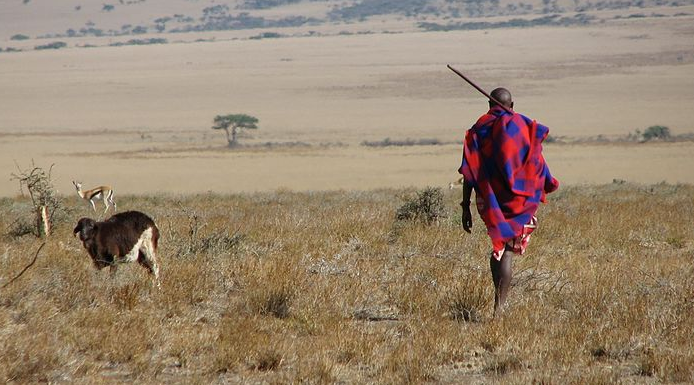| By Oakland Institute
Photos: Wikimedia Commons
Oakland, CA — Boston-based Thomson Safaris is exploiting the Tanzanian government’s brutal repression of land defenders to legitimize control over Maasai land in the Loliondo Division of the Ngorongoro District. In June 2022, the government carried out land demarcation to create a Game Reserve in Loliondo, which saw security forces fire live ammunition on the Maasai, severely wounding dozens and displacing thousands. In the immediate aftermath of these events, Thomson Safaris carried out a resurvey of a long-contested land claim they have in the same area. Communities say they were excluded from the resurvey process and alleged in a November 2023 court filing that they have since suffered abuse by the company’s agents enforcing the new boundaries.

“Over the past two years, the Tanzanian government has repeatedly shown it will aid and abet foreign corporations operating luxury safaris at the expense of the Maasai communities who have stewarded these lands for generations. While labeling itself as a sustainable tourism operator, the American firm is getting away with capitalizing on this repression,” said Anuradha Mittal, Executive Director of the Oakland Institute.
Capitalizing on Chaos: Thomson Safaris Tightens Its Stranglehold Over Indigenous Lands in Tanzania exposes how in the aftermath of the resurvey, the strict enforcement of the new boundaries has aggravated daily hardships for the villagers who report incidents of violence – allegedly committed by Thomson Safaris’ guides – against pastoralists and their children. One villager cited in the report alleges, “My boy was taking care of the livestock when he was caught by a Thomson Safaris’ guide and beaten for no reason. He suffered injuries on his body…Our rights have been violated by an intruder in our ancestors’ land.”
As documented in the Oakland Institute’s 2018 report, Losing the Serengeti, since 2006, the Mondorosi, Sukenya, and Soitsambu villages have been ensnared in a prolonged struggle for the return of their lands against the company. Local communities seek to reclaim 10,000 acres of land in what is known to them as the Sukenya farm, originally transferred forty years ago without their Free, Prior, and Informed Consent and vital to their pastoral livelihoods. For over a decade, communities have pursued legal action for the full return of their land in the High Court of Tanzania and Court of Appeal, but to no avail. |
